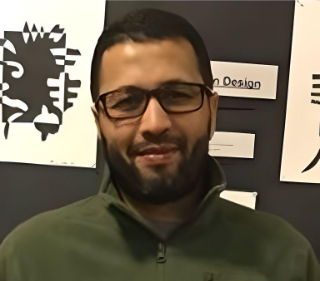Younes Benkarroum

Assistant Professor
Computer Information Systems
EMAIL: ybenkarroum@bmcc.cuny.edu
Office: F-1030L
Office Hours:
Phone: +1 (212) 776-7227
Professor Benkarroum’s research interests lie in the fields of computer vision and 3D reconstruction. His main research incorporates a variety of aspects, including mathematics, computer science, and biology. The purpose is to develop computer techniques for improved 3D reconstruction of viruses and the classification of their surface proteins by gathering the 2D information present in the projection images that are taken of specimens at different orientations with an electron microscope.
Expertise
Degrees
PhD, Computer Science, City University of New York Graduate Center
MS, Computer Science, The City College of New York
Courses Taught
- This course develops an understanding of computer technology through the exploration of software packages on personal computers. The applications include word processing, spreadsheet, and database management. Students will also learn computer terms and concepts as well as the historical, social and economic implications of computer technology for our society.
Course Syllabus - This course introduces the design, implementation, testing, and manipulation of database management systems. The design techniques include conceptual data modeling, entity relational modeling and normalization techniques. The databases are then implemented using structured query languages. Testing strategies verify data integrity, security, and privacy. Manipulation activities include insert, update, and delete operations.
Prerequisite: CSC 110 or CSC 111 or department approval.
Course Syllabus - Students are introduced to the UNIX operating system, its external commands, internal structures, and text processing capabilities.
Prerequisite: CSC 110 or CSC 111 or CIS 165 or Departmental Permission
Course Syllabus - This course introduces the student to the principles and theories of computation and information processing. The topics include hardware and software organization, data representation, algorithm development and networking principles. Special emphasis will be placed on creation of knowledge from data; the impact of computation on daily life; role of abstraction in solving problems; and implementation of algorithms on a variety of platforms including the Internet.
- This course is an introduction to the fundamental concepts and terms of computer science, including algorithms, problem solving techniques, data types, concept of loops, conditional statements, modular programming, pointers, arrays, strings, basic file processing, structures and simple classes. Students will use a high-level computer programming language to solve a variety of problems. Prerequisite: MAT 206 and [CSC 101 or departmental approval]
- This is a second course in programming which will further develop those skills gained in CSC 111 emphasizing reliability, maintainability, and reusability. Students will be introduced to applications of Pointers, Dynamic memory allocation, Arrays, Abstract data types, Objects, classes, and object-oriented design. Additional programming topics such as Inheritance, Polymorphism, Text Processing, Exception Handling, Recursion and Templates will also be covered. Prerequisite: CSC 111 or departmental approval
- The objective of the internship is to allow the student to put classroom theory in /major into the practice in order to gain work experience. Each student-intern will work 15 hours a week for the length of the semester. Each student-intern is assigned to an internship professor who is knowledgeable about the student's field. The internship professor helps the student secure internship placement in a work site related to the student's major, or assists the student to "reconstruct" her/his present position as an internship, or develop - by special arrangement and an internship with her/his present employer, and serves as the student's instructor and advisor during the field experience. Student interns are expected to work 15 hours a week, complete a term project assigned by the internship professor, and be evaluated by the work site supervisor. Students to be placed are expected to arrange their schedules so that they are free mornings, or afternoons, Monday-Friday, or two to three full days per week. Prerequisite: Completion of all remedial requirements; GPA of 3.0 in major courses; demonstrated excellence in oral and written communication (B or better in ENG 201 and SPE 100/102 or permission of the instructor); completion of CED 201; completion of at least 36 credits including prerequisites for GIS students and CIS 395, GIS 261, MAT 209.

